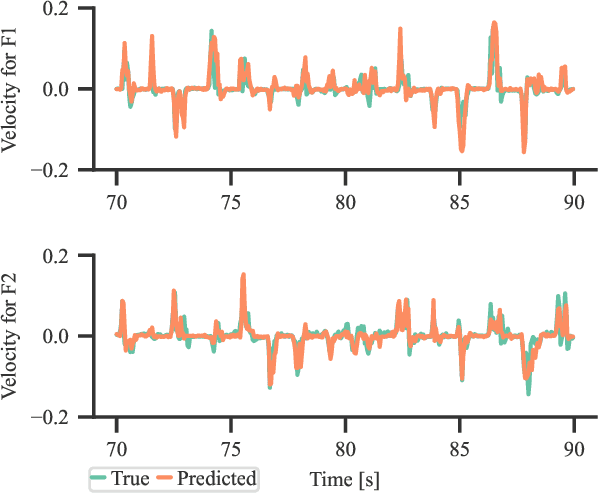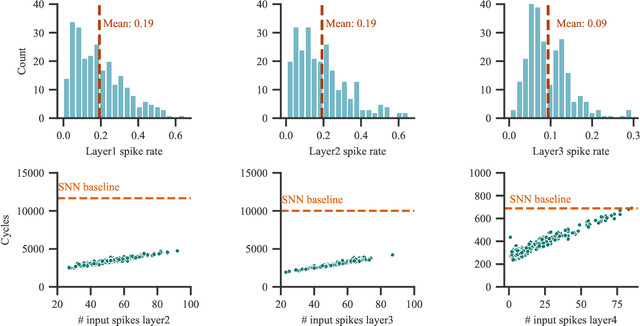Oscar Toomey
A Spiking Neural Network Decoder for Implantable Brain Machine Interfaces and its Sparsity-aware Deployment on RISC-V Microcontrollers
May 03, 2024



Abstract:Implantable Brain-machine interfaces (BMIs) are promising for motor rehabilitation and mobility augmentation, and they demand accurate and energy-efficient algorithms. In this paper, we propose a novel spiking neural network (SNN) decoder for regression tasks for implantable BMIs. The SNN is trained with enhanced spatio-temporal backpropagation to fully leverage its capability to handle temporal problems. The proposed SNN decoder outperforms the state-of-the-art Kalman filter and artificial neural network (ANN) decoders in offline finger velocity decoding tasks. The decoder is deployed on a RISC-V-based hardware platform and optimized to exploit sparsity. The proposed implementation has an average power consumption of 0.50 mW in a duty-cycled mode. When conducting continuous inference without duty-cycling, it achieves an energy efficiency of 1.88 uJ per inference, which is 5.5X less than the baseline ANN. Additionally, the average decoding latency is 0.12 ms for each inference, which is 5.7X faster than the ANN implementation.
 Add to Chrome
Add to Chrome Add to Firefox
Add to Firefox Add to Edge
Add to Edge